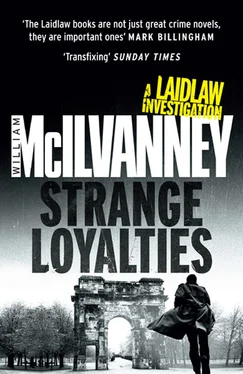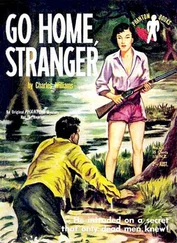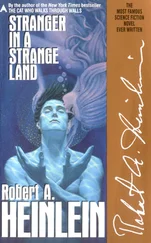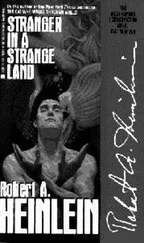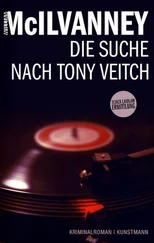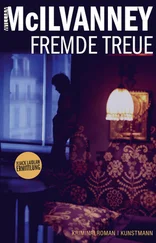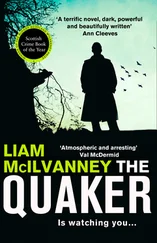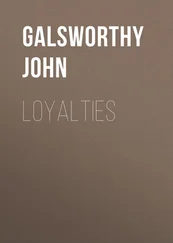William McIlvanney - Strange Loyalties
Здесь есть возможность читать онлайн «William McIlvanney - Strange Loyalties» весь текст электронной книги совершенно бесплатно (целиком полную версию без сокращений). В некоторых случаях можно слушать аудио, скачать через торрент в формате fb2 и присутствует краткое содержание. Год выпуска: 0101, Издательство: Canongate Books, Жанр: Полицейский детектив, на английском языке. Описание произведения, (предисловие) а так же отзывы посетителей доступны на портале библиотеки ЛибКат.
- Название:Strange Loyalties
- Автор:
- Издательство:Canongate Books
- Жанр:
- Год:0101
- ISBN:нет данных
- Рейтинг книги:4 / 5. Голосов: 1
-
Избранное:Добавить в избранное
- Отзывы:
-
Ваша оценка:
- 80
- 1
- 2
- 3
- 4
- 5
Strange Loyalties: краткое содержание, описание и аннотация
Предлагаем к чтению аннотацию, описание, краткое содержание или предисловие (зависит от того, что написал сам автор книги «Strange Loyalties»). Если вы не нашли необходимую информацию о книге — напишите в комментариях, мы постараемся отыскать её.
Strange Loyalties — читать онлайн бесплатно полную книгу (весь текст) целиком
Ниже представлен текст книги, разбитый по страницам. Система сохранения места последней прочитанной страницы, позволяет с удобством читать онлайн бесплатно книгу «Strange Loyalties», без необходимости каждый раз заново искать на чём Вы остановились. Поставьте закладку, и сможете в любой момент перейти на страницу, на которой закончили чтение.
Интервал:
Закладка:
‘No more of the stuff.’
‘Correct. Who’s god for those people?’
‘The man who gives the goods.’
‘I don’t think you’re looking for some lost soul who took a bad mood. I think you’re looking for more important people.’
I didn’t know whether Brian’s silence meant awe at my forensic brilliance or just that he had fallen asleep.
‘Well,’ he said. ‘Thanks for taking so long to tell us what we knew already.’
We both laughed.
‘You might just about get a pass-mark at detective school for that lot.’
We talked some more but that was enough of that. Brian’s reaction had punctured my self-absorption. Other people’s problems seem so much simpler than our own. Maybe I had enjoyed playing at detectives with Meece Rooney’s death because I couldn’t begin to understand Scott’s. I had been like a man in a real war who finds relief in playing chess. I had become involved in a case that for me was purely abstract. I didn’t want to be. I had my own worries. What did Meece have to do with me just now? He was Brian and Bob’s problem. It could stay that way.
‘Okay,’ Brian said. ‘Oh, by the way, Bob Lilley says when you’ve stopped taking the fits, we’d love to have you on this case with us.’
‘Aye,’ I said. ‘Tell him if he could take the odd fit, it would be a hopeful sign. It might prove he was alive. Tell him he could live in Madame Tussaud’s and nobody would notice the difference.’
‘I feel like a Valentine card,’ Brian said. ‘Passing on all these loving messages.’
‘Cheers,’ I said.
I put down the phone rather noisily and Buster growled at me, his Dobermann ears erect.
‘Shut your face, Buster,’ I said. ‘The world’s queuing up to have a go at me and you’re at the end of the queue. I’ll see you after.’
We stared at each other. One of the advantages of having big worries is that smaller problems seem irrelevant. It’s all a question of perspective. I felt as if I could give Buster a sorer bite than he could give me.
8
I imagined a party. That is not a difficult thing for me to do. It has always been a word liable to send my mind off in pursuit of its fabulous nature, like El Dorado.
This was a big party. It took place in a house in Marrenden Drive, which is a street in Troon, a town not far from Graithnock. Troon is an interestingly Scottish town. It has for a long time had a shipyard. It has also for a long time been a fairly popular coastal resort, where quite a few well-off people have chosen to live. Therefore, it has, like most things Scottish, a dual nature. It is both rough and genteel. Visitors may have to find the roughness for themselves. The gentility will be more obvious. A passer-by might be forgiven for wondering if they toilet-train the seagulls.
But then that modest gentility sub-divides itself into its own duality, for it conceals not only the fact that some people have much harder lives than the town suggests but the fact that some people have much softer ones. There is considerable wealth here. Marrenden Drive is where some of that wealth resides. In the slightly Calvinist forthrightness of the place, Marrenden Drive is a well-hidden softness, like a secret and surprisingly lush garden where discreet riches bloom into stone.
The house where the party was held was large and sat in its own grounds. That night it must have been lit up like a small city. Its owner was known for a certain lavishness. His name was Dave Lyons and he had many business interests, though perhaps only he knew what they all were. Besides the house in Marrenden Drive, he appeared to have a place in Edinburgh, where his business was conducted.
There were maybe sixty or seventy people present at the party. The guest-list was varied. Dave Lyons was a self-made man who had, like a lot of us, played at rebelliousness in his youth and had continued to maintain loose friendships with people from different areas of society. The party would be an expression of his socially eclectic life, with all its disparate elements seemingly reconciled in an atmosphere of warmth and celebration.
As the evening progressed, the whole house came into use. The party broke up into side-shows, as parties often will. People stood in the kitchen, trapped in one of those drink-assisted debates that seem at the time like the most important issue in the world. In the dining-room, some were pecking at the remains of the very impressive buffet. Music was playing in the spacious lounge, where disorderly dancing was taking place. Who knows what else was happening in other rooms? But upstairs, in what Dave Lyons called the television room, some four or five people sat around, watching a programme. They seem not to have noticed that someone had come in and stood behind their chairs, looking over their heads at the images on the screen. But they couldn’t help noticing what he was soon to do.
The room was in darkness apart from the light of the television set. In that peaceful dimness, where people lolled with glasses in their hands, what happened must have been like an air-raid on a pleasure beach. A very large crystal vase passed above their heads in a deadly trajectory and converged with the television screen. The set, balanced on one ornately decorative, spindly leg, keeled backwards on to the floor, where it is reported to have expired in a not un-musical jangle of guts. Someone dropped a glass. A woman screamed. Panicked movements took place in the dark, suggestive of the aftermath of a terrorist attack. Someone put on the light. There, nodding benevolently at everyone, was a man who appeared to think he was on the rostrum at a march-past in his honour. He was identified as Scott Laidlaw.
The fuel for my imagination had come from Anna, through John Strachan by way of Mhairi Strachan. But I suspect my sense of the event isn’t too wildly divergent from the facts. Anna, it seems, outlined the entire evening for Mhairi in vivid detail. The whole thing was, Anna had said, carved on her memory. It must have made a fair impact. Those were dramatic words for Anna, whose normal social discourse seemed to me to have all the authenticity of an air-hostess’s smile. She had also said that the night had been the last straw for her and in that less resonant phrase I thought I recognised her more habitual tone.
Anna had assiduously collected the contextualising details of Scott’s social philistinism and relayed them at length to more than Mhairi. I thought the reason was perhaps the need for self-justification that tends to come to people prior to the foreseen break-up of a relationship, like an outrider warning them to cover their flanks. I could imagine her going the rounds in that way that I’ve known friends of mine to do, holding a public roup of their former commitment, so that it may become clear that there is no longer any reason for them to stay.
I had to admit she seemed to have a case. The impossibility of living with Scott appeared to have been caught in flagrante. After John Strachan had told me, we both sat silent for a while, in the lounge of the Bushfield. He sipped his pint, I sipped my whisky. The grandiose folly of Scott’s gesture was both arresting and incomprehensible. It replayed itself endlessly in my mind like some demented fiddle-tune — Laidlaw’s Farewell to the Social Life. But were there any words to it? What did it mean?
‘This Dave Lyons,’ I said. ‘I’ve heard of him. But not from Scott himself. Just sometimes from Scott and Anna together. Had Scott fallen out with him?’
‘I don’t know. I think they knew each other better when they were younger. Maybe it was one of those relationships that just survive on habit. Past any reason that either of them understood any more.’
‘I was wondering why Scott attacked his telly. Was it a resentment of his money? But that seems a pretty pathetic target to go for. Who hasn’t got a TV? It’s not exactly the first thing you’d associate with Rockefeller.’
Читать дальшеИнтервал:
Закладка:
Похожие книги на «Strange Loyalties»
Представляем Вашему вниманию похожие книги на «Strange Loyalties» списком для выбора. Мы отобрали схожую по названию и смыслу литературу в надежде предоставить читателям больше вариантов отыскать новые, интересные, ещё непрочитанные произведения.
Обсуждение, отзывы о книге «Strange Loyalties» и просто собственные мнения читателей. Оставьте ваши комментарии, напишите, что Вы думаете о произведении, его смысле или главных героях. Укажите что конкретно понравилось, а что нет, и почему Вы так считаете.
